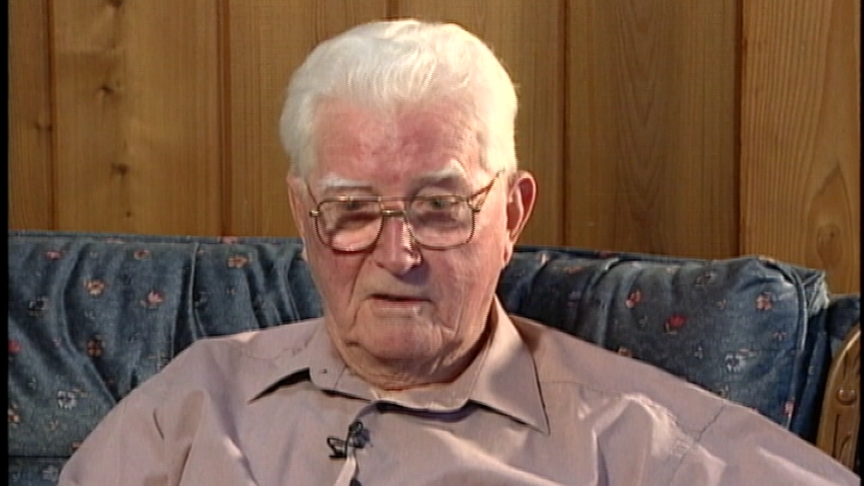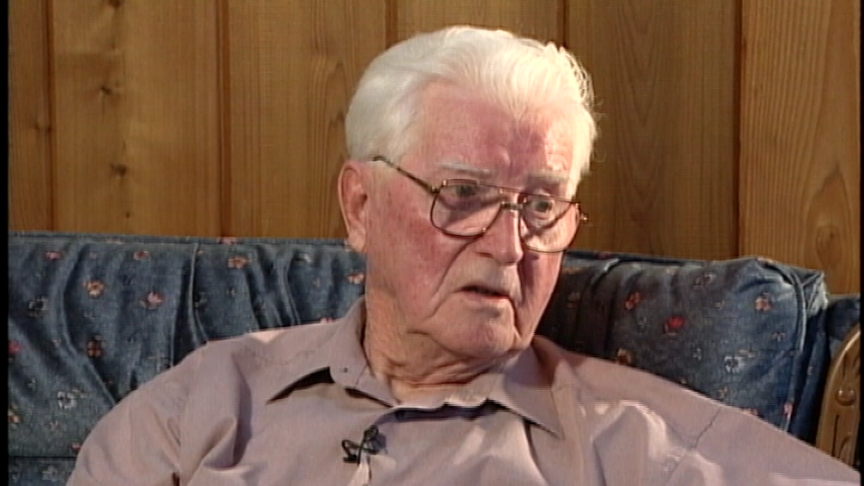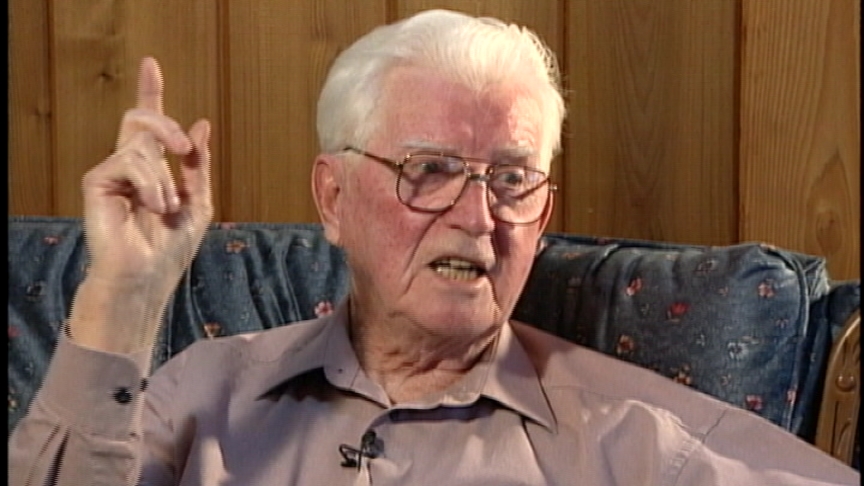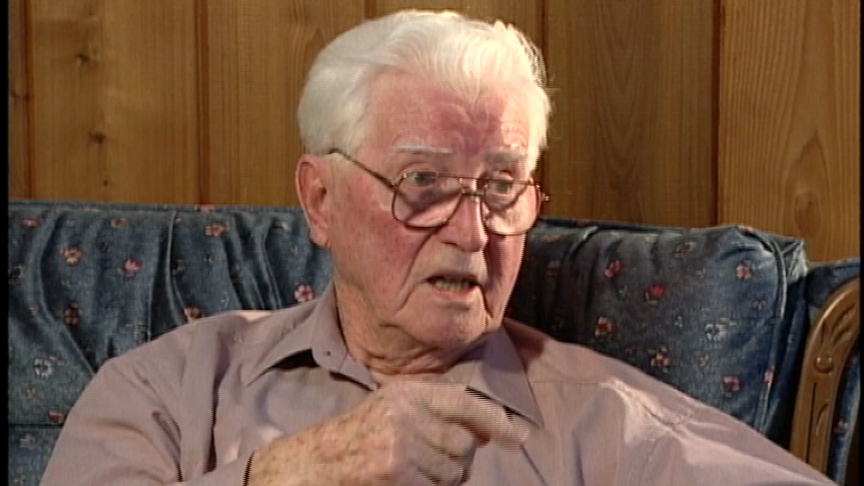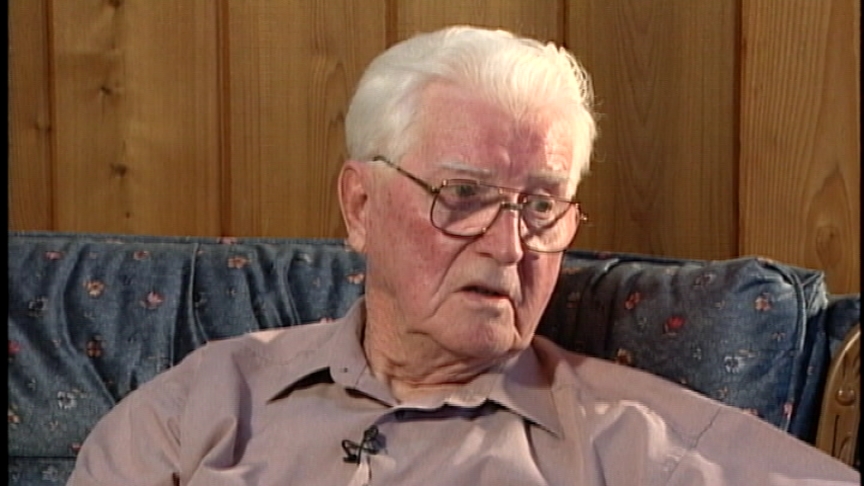So we came into a hospital,
a hospital in Garut in the middle of Java,
pretty well. The same time as the Japanese
came in, we came in the morning and
was thrown out of the hospital
in the afternoon.
I don't know very much about that because
by that time we were pretty well out of it.
There was a Norwegian
Salvation Army nurse there.
She told us when we came in,
the, the rest of the patients,
which were mostly British soldiers
they said get these guys out of there
they stink like...
We were rotten you see, because after the
bombs we're full of maggots,
we were in a hell of a shape.
I used all my clothes to bandage
my friend Harpester.
So I was naked from there up and
the burnt, the sun burnt,
and the skin was rolling off your body.
Interviewer: So five days...
We didn't look like human beings.
So apparently we were not a very nice sight.
The Japanese then took the British soldiers
out of there, what happened to them
I don't know, concentration camp I guess.
We were put in the back of the hospital and
taken care of more or less,
by the Salvation Army.
Later on we were transferred,
we were allowed to go into private homes,
you know, with better care.
With the Japanese threat at all times,
you know, we were spies, we were spies,
and we were spies...
As soon as we were able to walk,
actually before we were able to walk
we were taken down to Kempetai,
you know the Gestapo.
Interviewer: So the Japanese were there?
The Japanese were there.
They came the same day as we
came into the hospital.
We came in the morning,
they came in the afternoon.
Interviewer: So what happened?
Where did you end up?
Well right then I ended up with a home,
with that the Salvation Army nurse,
she took us home to her, her home.
We, Harpester, the friend of mine, and I
we lived there for a while.
And later on, we were actually not
taken prisoners then because we were
not at war. Norway was not at war with Japan.
But they wouldn't believe us, you know
we said we were Norwegian, they said
no you're a British spy, you know and
all that sort of bologna, which...
We didn't have any papers.
So, but after awhile, all the Norwegian were
more or less collected up in one bunch and
we were given flags to mark that
we were Japanese,
early Japanese orders you can say,
or jurisdiction, but we had all our
identity as well.
So we had a curfew but we were not prisoners,
not before in 1943, then they came.
Norway had declared war on Japan
and that was the end of the...
We were taken into a back of a truck,
full up of Armenians and people
who had been hospitalized.
Well actually there was a couple,
which were, been in bed ridden you
could say for eight years,
had never been out of their bed.
All of a sudden they were thrown out
of their bed and thrown into
the back of the truck you know.
There was no nice treatment anymore.
We came down to the police station and
as I told you earlier that the second mate
jumped overboard, the one who lost a leg.
He was on there,
I thought he was dead,
I didn't know he was alive.
He was there minus a leg.
It was off up here and above the knee
and he was in bad shape.
The Japanese had kicked him on the,
on the stump with the, with his gun and
he fainted and he was laying there on the,
on the floor in agony you know.
So we picked him up and helped him
best we could and from then on,
we were put in concentration camp and that.
And the hell we got, you can say,
you know it was...



